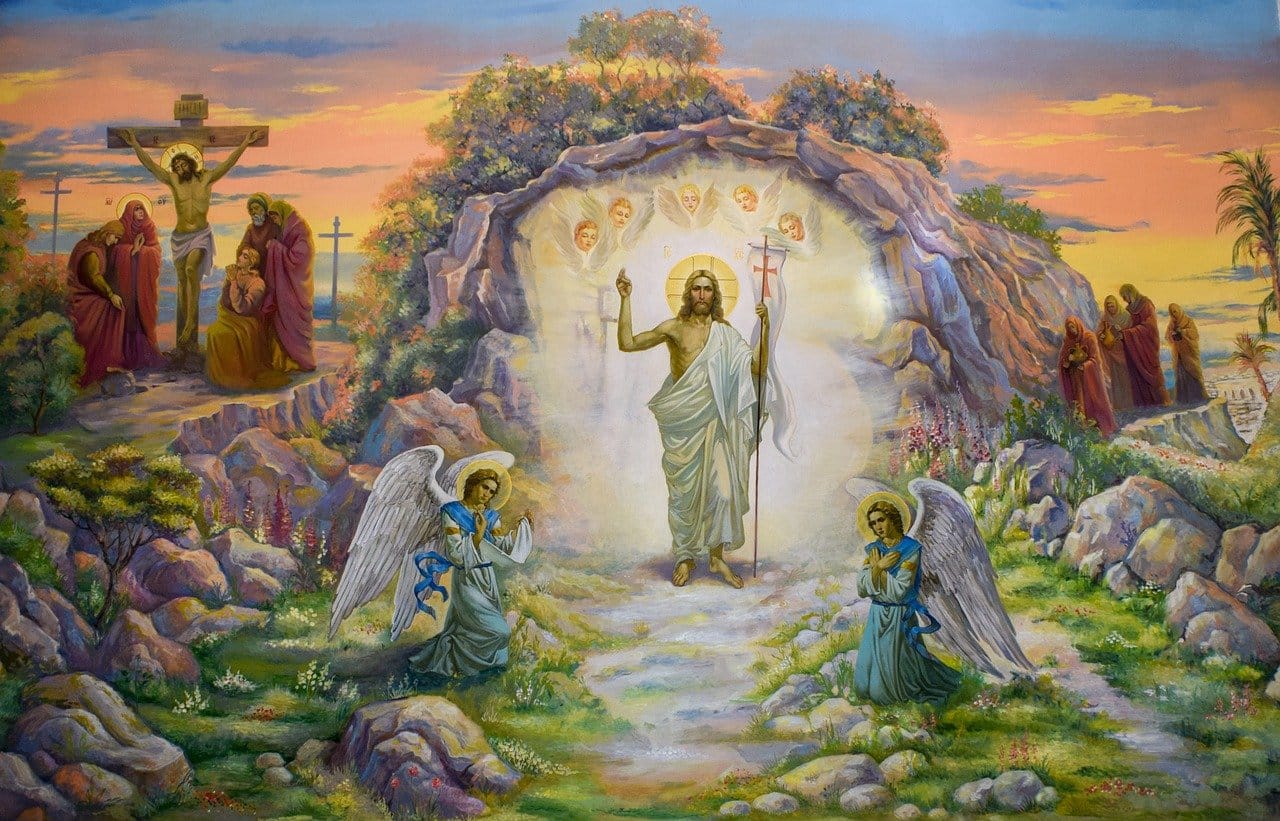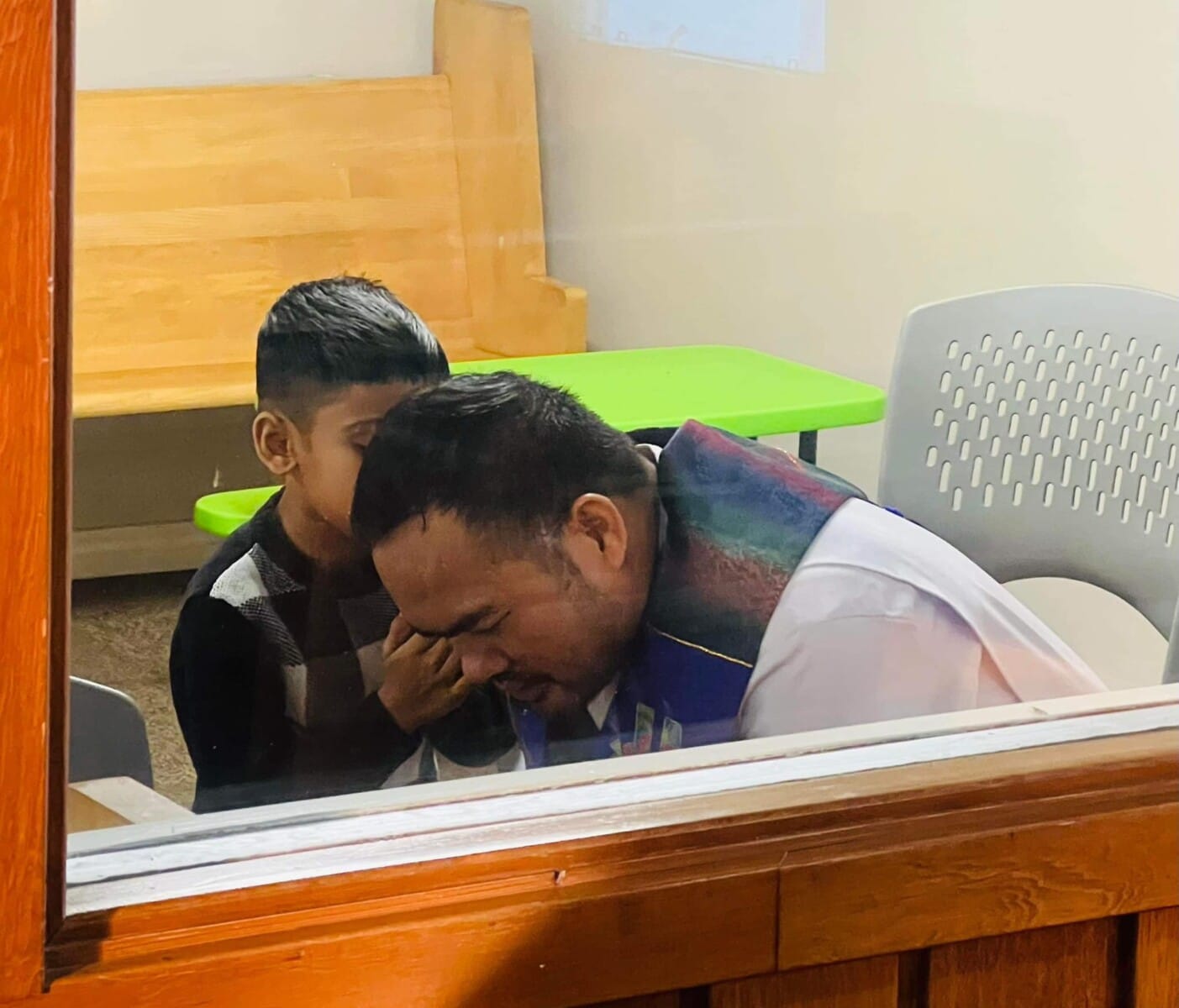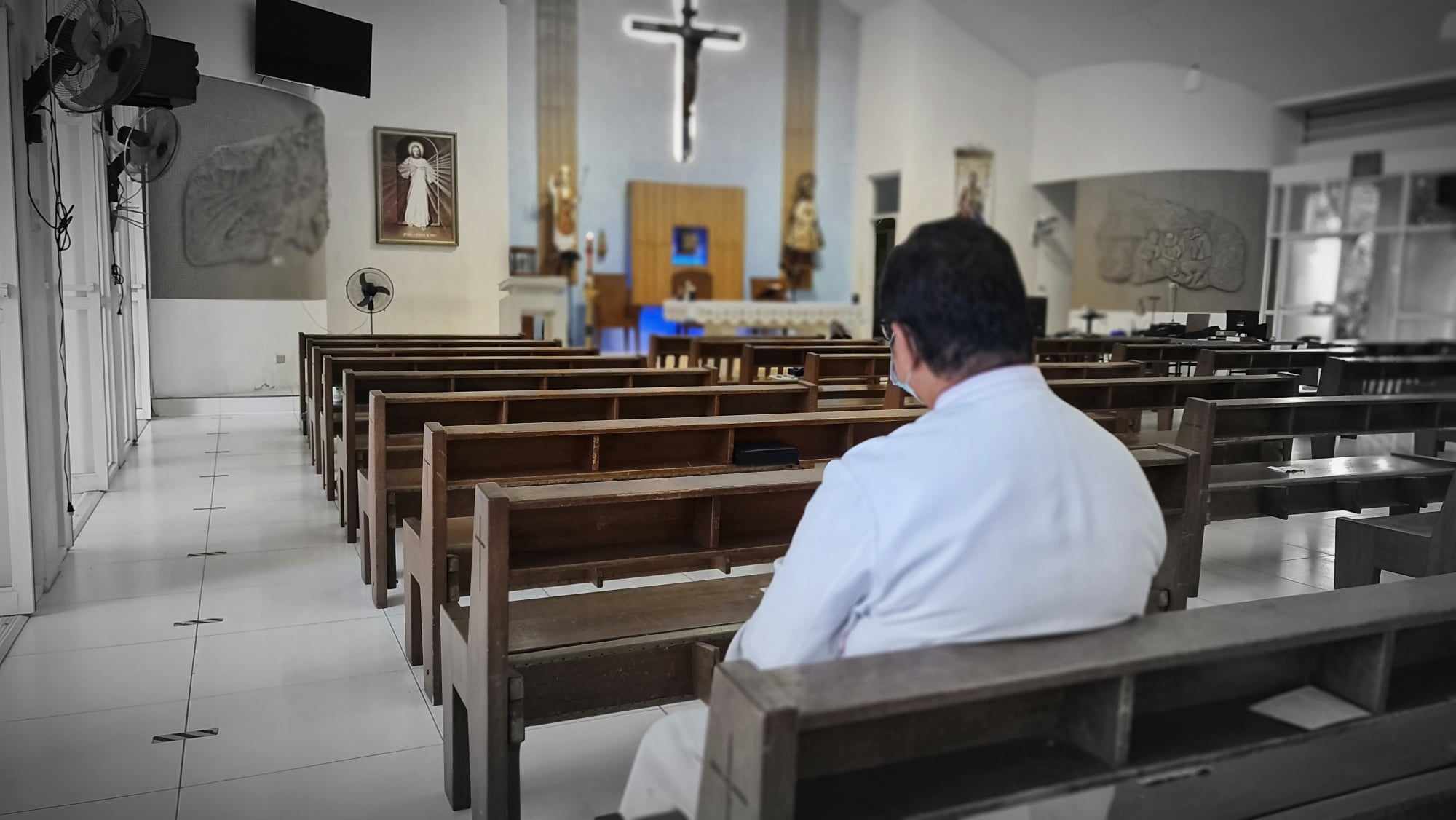
A Paschal journey to the promise land
Sacramentum explores the sacraments of the Catholic Church – the depths of their meaning, history, and, above all, the impact they have on each of us in our daily faith lives. In this reflection, pastoral intern Rudy Jerome Mallannao reflects on the sacrament of reconciliation, and the way the healing power of this sacrament is reflected in the Paschal Mystery.
Making promises plays a big part in our daily lives. We have different ways of giving some credibility to the promises we make, like “Pinky Promise” and “Cross my heart.” It can become second nature, to the point that we may make promises without fully discerning the weight they carry.
The sacredness and importance of promises is strongly reflected for us in the Sacrament of Reconciliation. In this sacrament there are two promises that are at play. First is God’s Promise to us, that in his boundless love and mercy he will always be there to forgive us. Secondly, the promise that we make to God after receiving the sacrament: that we, in return, will make an effort to do better and sin no more.
The season of Lent tells us to “Repent and believe in the good news.” We reconcile ourselves to God and we make promises to do better. A big aspect of Lent is immersing oneself in the paschal mystery of Christ: to immerse oneself in the suffering, death and resurrection of Jesus. In a similar manner, every time we receive the Sacrament of Reconciliation, we enter the paschal journey, and are immersed again in Jesus’s suffering, death and resurrection.
When we receive the Sacrament of Penance, we recognize our shortcomings and lay bare our vulnerabilities to humbly ask God for mercy and pardon. This in itself is a paschal journey. Going for confession is an act of sacrifice, dying to oneself and rising to live a new life, a new life opened up by the promise to do good and avoid evil (St. Thomas Aquinas’s first principle of practical reason).
All journeys have a beginning and an end, a starting path and an end goal to look forward to. The same principle applies to our Lenten Journey. It begins with looking at our lives and recognizing our limitations and fragility to temptation and sin, but the end goal is always the promise land, the hope of eternal life. What does the promise land mean for us today? In Scripture, the promise land symbolizes peace, communion, and the fulfilment of God’s promise.

God promised a lot of things, like salvation, eternal life, forgiveness, peace, the Holy Spirit, and the promise to remain with us forever. These promises are all amazing and are the manifestation of the “promise land” that our forefathers in the Old Testament longed for.
Lent is the journey towards those promises and Easter is the fulfillment of them. However, how can we attain these promises if we are not reconciled?
The Paschal Mystery tells us that in Jesus’ journey, he took everything to himself, including our sins and crosses, suffered for them, died, and rose from the dead anew. It is in the sacrament of Reconciliation that we carry the very same crosses that Christ carried. Acknowledging our weaknesses and short comings, wholeheartedly, we seek penance for them and die to oneself – reaching the promised land, and to be reborn anew, forgiven and freed from the chains of death and sin (Isiah 107:10-16, Galatians 5:1).
The practice of going to confession has largely declined in our day. This is due to a number of reasons and mindsets that have developed throughout the years. One of these reasons is the assertion that one does not need to confess their sins to a priest in order to receive forgiveness; instead one can just cut off the middleman (the priest) and ask God himself for forgiveness. Another obstacle targets the identity and character of our priests, with some saying: “our priest doesn’t seem to be holy enough, why then would I confess my sins to a sinner like me?” But the truth of the matter is that Christ gave the priest the special authority and power to forgive sins when He spoke to his Apostles after his resurrection:
Jesus said to them again, “Peace be with you. As the Father has sent me, so I send you.” When he had said this, he breathed on them and said to them, “Receive the Holy Spirit. If you forgive the sins of any, they are forgiven them; if you retain the sins of any, they are retained.” (John 20: 19-23)

What matters is that through his priestly office the priest receives the power to forgive sins. Priests, by virtue of the Sacrament of Holy Orders, have the power to forgive all sins ‘in the name of the Father, and of the Son, and of the Holy Spirit’ (Catechism of the Catholic Church 1461). It should always be remembered that in the Sacrament of Penance, God is the one who forgives sins. An excellent preacher, Bishop Fulton Sheen once said: “The priest is a mediator of divine grace.” The priest in the confessional acts “in persona Christi” which translates to “in the person of Christ.” This means that Christ is acting through the priest to forgive sins.
The Sacrament of Reconciliation is not just a matter of saying sorry and promising not to sin again. Each confession is part of our own paschal journey towards Easter, towards the promise land of eternal life with God. The Sacrament of Reconciliation is the continuing fulfillment of mutual promises between God and man: God’s promise of forgiveness and our promise to him to strive for holiness.
In our Lenten Journey, know that you are not alone. You have a community journeying with you, the same community who also walks the path of the paschal mystery, dying to oneself and aiming to be reborn into Eternal Life. So, what are you waiting for? The journey has begun, the time is now. Ask your parish priest for the Sacrament of Reconciliation. Your Lenten journey is coming to a close, the hour is near, Easter it at hand!